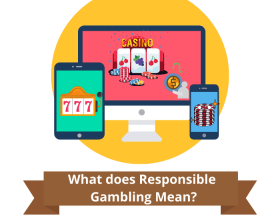Teaching children about responsible gambling is an essential part of their overall education. While gambling can be entertaining for adults, it is crucial to educate children about the risks and potential consequences associated with gambling.
Why is Responsible Gambling Education Important?
The principles of responsible gambling should be instilled in children to ensure they make informed decisions regarding gambling activities in the future. It helps protect them from developing problematic attitudes, behaviors, or dependencies on gambling later in life.
Understanding Gambling
Children should have a clear understanding of what gambling entails. Explain that gambling involves risking money or an item of value on an uncertain outcome, with the primary intention of winning more. Emphasize that gambling should always be viewed as a form of entertainment and not as a means to make money.
Identifying Age-Appropriate Gambling Activities
Children need to differentiate between age-appropriate gambling activities, such as playing cards with friends for fun, and illegal forms of gambling that are strictly prohibited for their age group. Help them understand the legal gambling age limit in their country or state, which will vary from place to place.
The Risks of Gambling
Explain to children that gambling comes with inherent risks. Discuss the potential financial loss and the negative impact it can have on relationships, mental health, and overall well-being. Emphasize that there are no guarantees of winning and that it is essential to think carefully before engaging in any gambling activities.
Recognizing Problematic Gambling Behaviors
Teach children how to recognize signs of problematic gambling behaviors, such as becoming obsessed with gambling, hiding their gambling activities, or neglecting important responsibilities. Encourage them to seek help if they suspect they or someone they know is struggling with gambling addiction.
Setting Limits and Making Informed Choices
Empower children to make informed choices by setting limits on their gambling activities. Teach them the importance of budgeting and how to decide on a specific amount of money or time to spend on gambling. Emphasize the significance of sticking to these limits and not exceeding them.
Reliable Sources of Information
Provide children with reliable sources of information on responsible gambling, such as official gambling regulatory bodies, educational websites, or helpline numbers. Encourage them to seek reputable sources when learning more about gambling to ensure they have accurate and unbiased information.
Leading by Example
Children often learn by observing their parents or guardians. It is crucial to set a good example by showing responsible gambling behavior or avoiding gambling altogether if it is not a part of one’s lifestyle. Children are more likely to adopt responsible habits when they witness them from a young age.
Conclusion
Educating children about responsible gambling is an integral part of their overall education. It equips them with the knowledge and skills to make informed decisions regarding gambling activities in the future. By teaching them about the risks, setting limits, and providing reliable sources of information, we can help prevent gambling-related problems and promote a healthier attitude towards this form of entertainment.






